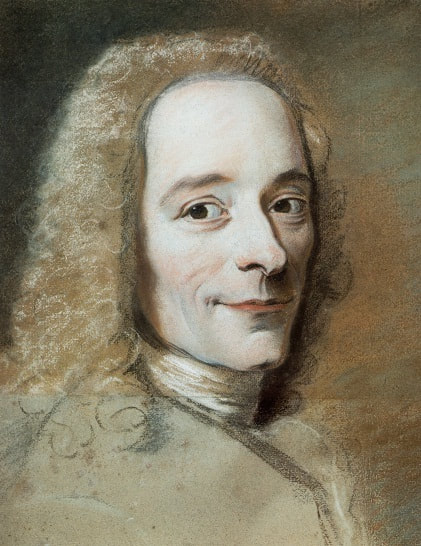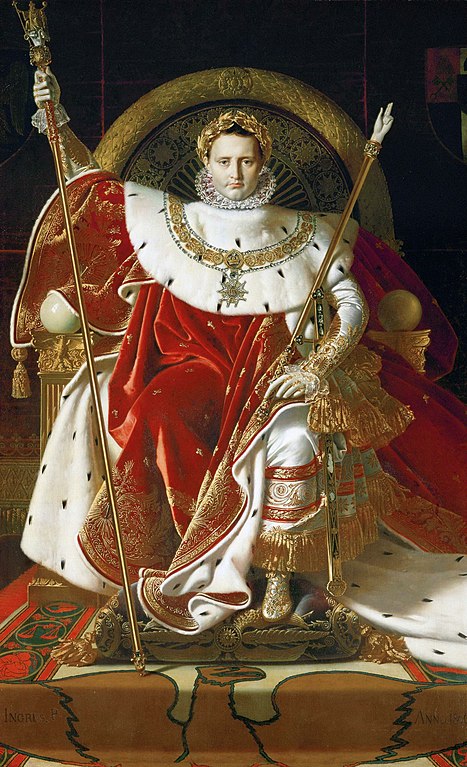|
The French Revolution is one of the most important events in modern European history, setting the stage for the spread of popular government not only in Europe, but also onto every inhabited continent. While the French Revolution could be explained in an infinite number of ways, I am highlighting five causes in this post. Click here to download this guide in a printable PDF format. 1. The French Financial Crisis
3. The Rise of the Bourgeoisie
4. The Influence of Enlightenment Philosophy
5. The Ineptitude of Louis XIV
0 Comments
REPRESENTATIVE GOVERNMENTNapoleon ruled in the autocratic style of an absolute monarch. Although legislative bodies existed in France during Napoleon’s reign, they had little real power, having been stripped of it by the Constitution of Year XII (1804). If the principle of representative government was the cornerstone of the French Revolution, Napoleon definitely did not advance its values. POPULAR GOVERNMENTWhile Napoleon’s autocratic rule violated the principle of representative government, there is no doubt that Napoleon enjoyed the support of the majority of the French people and considered himself an agent acting on their behalf. The Constitution of Year XII, which elevated Napoleon from First Consul to Emperor, was ratified by the French people in a plebiscite, or national referendum, with over 99 percent of voters voting in favor of Napoleon becoming emperor and claiming the powers that came with it. Additionally, he claimed the title of “Emperor of the French,” rather than “Emperor of France,” in recognition that his power came from the French people rather than by divine right. Although the people were not directly involved in governing through elected representatives, Napoleon gave a nod to the principle of popular sovereignty under the social contract and used his power to deliver popular reforms, such as the Concordat of 1801, re-establishing the Catholic Church as the “majority religion” of the French people. EQUALITY UNDER THE LAWThe Napoleonic Code established a uniform system of laws that applied equally to everyone in the French nation. There were no aristocratic privileges (e.g., tax exemptions for an entire class of people) of the sort that had existed under the Old Regime. This new system of laws recognized the people of France as a nation rather than a collection of three estates. Some exceptions to equality under the law existed under the Napoleonic Code, such as it being more difficult for women to sue for divorce than men (she only had grounds if her husband brought his mistress into the family home, thereby embarrassing her) and the re-establishment of slavery in the French colonies. However, it should be noted that under the Old Regime, legal divorce did not exist in France, at all, and Britain did not have a similar law until 1857. EQUALITY OF OPPORTUNITYUnder Napoleon’s leadership, France made great strides toward equality of opportunity. He expanded access to education, creating lycées that provided a free secondary education to students who could pass the entrance exams. This expanded access to education created unprecedented opportunities for young people from common backgrounds to enter the civil service, the officer corps of the military, or the Catholic hierarchy. Under Napoleon, promotions in the military and civil service were based on merit, rather than social status or noble birth. [CLASSICAL] LIBERALISMIf the French Revolution was chiefly about promoting liberal values of free speech, press, and religion, Napoleon would get mixed reviews. His government employed censors , who screened literature and newspapers for offensive content and criticism of the government. However, while the Concordat of 1801 re-established the Catholic Church as the “majority religion” of France, it stopped short of declaring it as the state religion. Napoleon allowed full religious toleration during his reign and even granted Protestant ministers similar subsidies as he gave to Catholic priests. Napoleon’s rule has often been compared to that of the Enlightened Absolutists, as several of his reforms can be seen as implementing liberalism from above. NATIONALISMThe Old Regime was made up of the three estates. The laws and the administration of justice varied from region to region. The people of France were bound together only as subjects loyal to the King of France. The Revolution sought to create a French nation that consistently French across regions and did not differentiate legally between members of social classes. Napoleon advanced the idea of French nationalism by creating a single law code for all of France that established equality under the law, his continued use of the revolutionary Tricolor flag, the restoration of the Catholic Church as the official “majority religion,” and proclaiming himself as the Emperor of the French (People). In the schools established by Napoleon, French was the only language of instruction. This spread the French language to parts of France where it had not been spoken or understood under the Old Regime. French was also established as the only language of the legal system. Napoleon also presided over the peak of France’s national greatness and military power. The French people loved him for this, eagerly rallying around the emperor of their own choosing after his escape from his first exile in Elba. During the Hundred Days, Napoleon re-established himself as the Emperor of the French until he was deposed again after being defeated at Waterloo by the foreign military forces of the Seventh Coalition. SOCIAL MOBILITYPerhaps, the greatest defense that Napoleon could make that he did not undermine the values of the French Revolution was that he personified these values with his own extraordinary life. Napoleon was born to a minor noble family in Corsica (an island off the coast of France that is technically French, but not “seen” as French).
Under the Old Regime, Napoleon would have risen only to the middling officer ranks but would never have been placed in command of an army. Napoleon’s journey from being born to minor provincial nobility to becoming the Emperor of France is, in and of itself, one of the great stories of the French Revolution and its upending of the Old Regime and its system of aristocratic privilege. |
Tom RicheyI teach history and government Archives
May 2023
Categories
All
|




 RSS Feed
RSS Feed